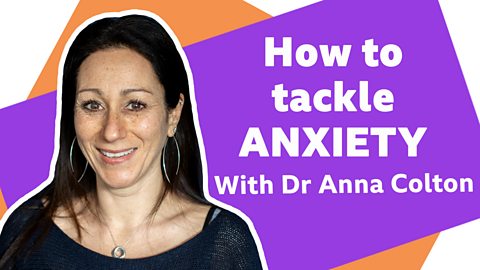An opinion poll conducted by Parentsâ Toolkit and popular parenting website found that many parents of primary school aged children noticed that their child had expressed feelings of loneliness and anxiety, with nearly 1 in 3 saying that theyâve noticed a deterioration in their childâs mental health over a 6 month period.
We also found that 63% of parents said that mental health was never discussed whilst they were growing up. In turn, the poll found that only 40% of parents said they felt âvery confidentâ when talking to their own child about their mental health.
It can be difficult to navigate conversations about mental health with your child - especially if you didnât have those conversations when growing up. Laverne Antrobus is a consultant child and educational psychologist who has over 20 yearsâ experience in family mental health. Here are her top tips to help you build confidence when initiating conversations about mental health.
6 ways to talk about mental health with your child
1. Talk about good mental health

Ask your child how they think you can work together to look after their mental health. Encourage them to think about the things that make them feel positive and happy.
It could be something as small as going to the local park for some fresh air - or drawing or watching a movie. Knowing what lifts their mood can be so useful for the days that they feel down but itâs also important to keep up these activities regularly for their general wellbeing.
2. Offer to face challenges together

Sometimes children can stumble across information or news thatâs upsetting â let your child know that they can always talk to you if they see something that makes them feel worried or confused.
Help them to understand that everyone faces challenges from time to time and that youâre there to help them find solutions when things get tough. You may want to share some challenges that you are facing - and how youâre overcoming them.
3. Encourage talking to someone they trust
Remind children that talking to you and other trusted adults about their worries is often a good way to ease their concerns. Emphasise that they donât have to deal with things alone and remind them that they have a community around them who want to help.
Talk about adults who might be able to help e.g. a grandparent or a teacher. Ask your child who theyâd talk to when they get worried and let them know that youâre pleased to know that theyâll ask for help when they need it.
4. Celebrate good mental health

Try to notice when your child talks positively about things they have overcome â for instance if they mention working hard at something they were finding difficult, building friendships, or taking time out to do the things they enjoy. Give them the encouragement they deserve.
5. Trust your instinct to share your struggles and to ask your child about theirs
Donât feel embarrassed if talking about your own mental health. Being open in a way your child can understand will help them to cope better.
Asking your child about their struggles may feel tricky, but it will signal to your child that youâre there for them especially when theyâre going through a tough time.
6. Ask for help
If you think your child has mental health difficulties â your own worries about taking the best approach or talking about it might stop you from taking action. You may need support to work through these feelings so that you can focus on the things you can do to help your child.
49% of poll respondents thought that thereâs a stigma for parents whose children have mental health issues. However, there will be times when as a parent you may be worried about your childâs mental health. If you have any concerns, itâs important to speak to friends and family to hear their thoughts about how best to support you and your child.
This might feel hard or embarrassing at first, but you may find that sharing your concerns with others allows them to share their worries with you and you can support each other.
Remember that if your worries persist, talk to your childâs school or your GP. Knowing where to go and how to access the help and support that your child might need is crucial to building good mental health and well-being.
For more help on where to go â see this article: A mental health first aid kit for parents: Who to ask and what to do.
View a

More from ±«Óătv Bitesize Parents' ToolkitâŠ
Parents' Toolkit
Fun activities, real-life stories, wellbeing support and loads of helpful advice - we're here for you and your child.

Making a mental health support network to help you & your child
Advice on reaching out for help for you and your child. With tips from mental health charity Young Minds.

Canât sleep, wonât sleep? Five ways to get your childâs sleep back on track
Advice and tips on helping your kids into healthier sleep patterns

Mental health first aid kit for parents: Who to ask and what to do
Worried that your child needs help with their mental health? Here's how you can access professional help and support your child while you wait.

How to tackle anxiety with Dr Anna Colton
Dr Anna has made seven short films with easy to learn techniques.

